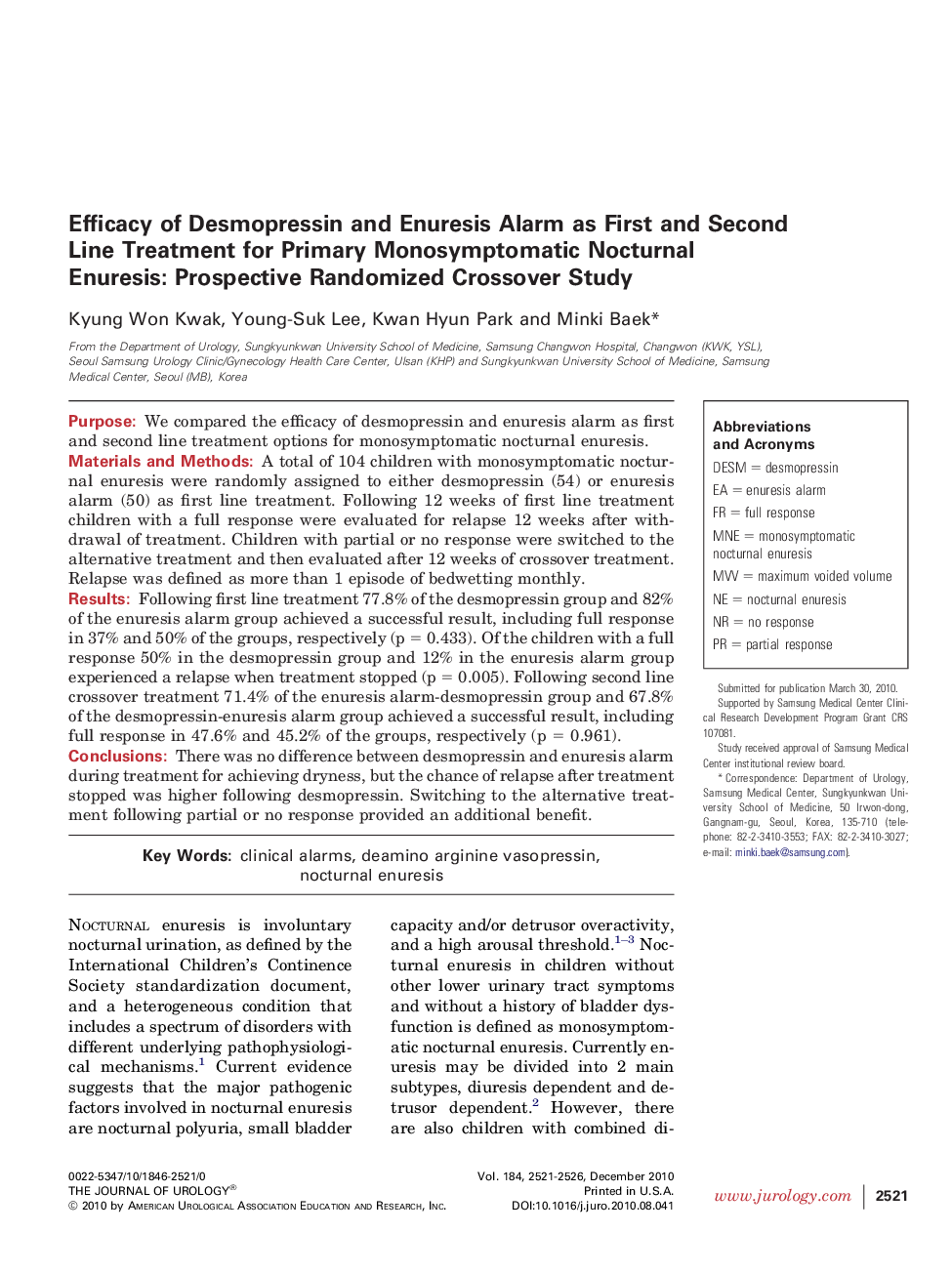| Article ID | Journal | Published Year | Pages | File Type |
|---|---|---|---|---|
| 3873007 | The Journal of Urology | 2010 | 6 Pages |
PurposeWe compared the efficacy of desmopressin and enuresis alarm as first and second line treatment options for monosymptomatic nocturnal enuresis.Materials and MethodsA total of 104 children with monosymptomatic nocturnal enuresis were randomly assigned to either desmopressin (54) or enuresis alarm (50) as first line treatment. Following 12 weeks of first line treatment children with a full response were evaluated for relapse 12 weeks after withdrawal of treatment. Children with partial or no response were switched to the alternative treatment and then evaluated after 12 weeks of crossover treatment. Relapse was defined as more than 1 episode of bedwetting monthly.ResultsFollowing first line treatment 77.8% of the desmopressin group and 82% of the enuresis alarm group achieved a successful result, including full response in 37% and 50% of the groups, respectively (p = 0.433). Of the children with a full response 50% in the desmopressin group and 12% in the enuresis alarm group experienced a relapse when treatment stopped (p = 0.005). Following second line crossover treatment 71.4% of the enuresis alarm-desmopressin group and 67.8% of the desmopressin-enuresis alarm group achieved a successful result, including full response in 47.6% and 45.2% of the groups, respectively (p = 0.961).ConclusionsThere was no difference between desmopressin and enuresis alarm during treatment for achieving dryness, but the chance of relapse after treatment stopped was higher following desmopressin. Switching to the alternative treatment following partial or no response provided an additional benefit.
